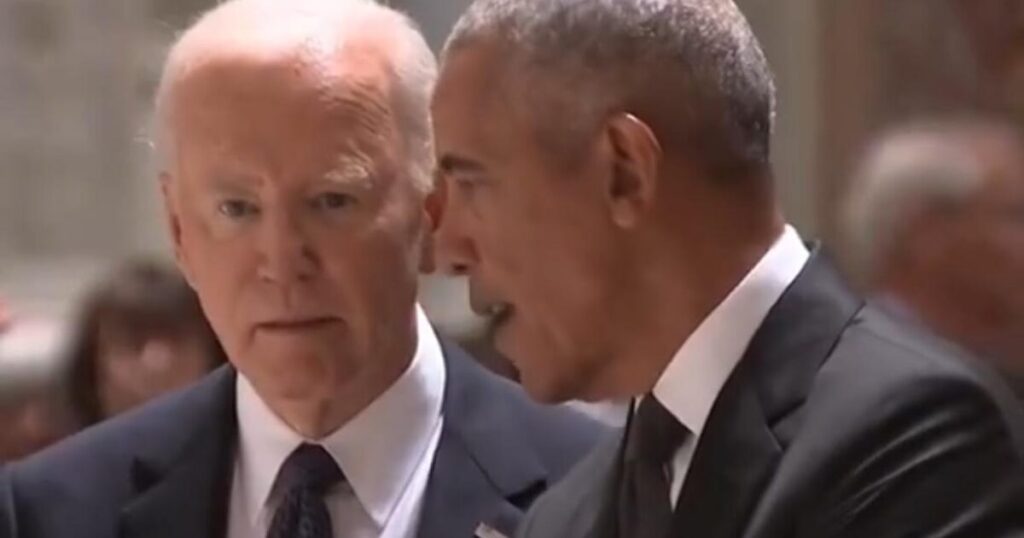The recent memorial service for Ethel Kennedy, who passed away at the age of 96, gathered prominent political figures including former Presidents Bill Clinton, Barack Obama, and current President Joe Biden. Ethel, known for her legacy as Robert Kennedy’s wife and an active member of the Kennedy family, died in Boston, surrounded by her nine surviving children and many grandchildren and great-grandchildren. Her son, Robert F. Kennedy Jr., announced her passing on social media, expressing gratitude for her long life filled with family and love. This gathering not only mourned Ethel Kennedy’s loss but also reflected on the intricate ties and tensions within the Democratic Party, especially as the nation approaches a pivotal election.
The memorial was held at the Cathedral of St. Matthew the Apostle in Washington D.C. As attendees gathered, there was an air of emotion intertwined with the underlying currents of political rivalry and personal tensions. Notably, Biden and Obama had a seemingly tense exchange before the service commenced, which some observers found noteworthy given the proximity of the upcoming 2024 elections. These interactions seemed to encapsulate the current state of affairs within the Democratic Party, particularly in light of Biden’s recent dropping out of the race and the jockeying for position that has occurred among party members, including Pelosi’s behind-the-scenes efforts to support alternative candidates.
During the service, Nancy Pelosi, the former Speaker of the House, addressed the attendees. Her remarks drew attention not only for their content but also for Biden’s apparent discomfort during the speech. This marked the first occasion that Biden and Pelosi had been in the same space since he withdrew from the race, heightening speculation about their relationship and the broader implications for party dynamics. Obama, having witnessed this unfolding scenario, appeared aligned with Pelosi, raising questions about the potential shifts in party alliances as the Democratic Party gears up for the upcoming election.
The funeral context was amplified by social media, with various clips of the memorial service circulating online. Some users focused on the relationship dynamics of prominent political figures, highlighting the visual cues and body language present during interactions. The lip-reading endeavors of some social media users sought to decipher the tense conversation shared between Biden and Obama, further suggesting the palpable competitive atmosphere that surrounded the event. As people continue to analyze these interactions, it becomes evident that Ethel Kennedy’s memorial has transcended mere remembrance, morphing into a lens for examining the intricate relationships and power plays within the Democratic Party.
Interestingly, the Kennedy family’s history and their connections to American political life added another layer to the memorial. Ethel Kennedy herself was known not only as a mother and grandmother but also as a matriarch who upheld the legacy of the Kennedy clan through numerous philanthropic efforts and social justice initiatives. This context provided a poignant backdrop for the political discussions that inevitably arose in a gathering of such high-profile figures, demonstrating how legacies influence contemporary political landscapes. As Biden, Obama, and Clinton recalled Ethel’s legacy, it appeared they were also navigating their paths forward in a potentially new political reality.
In conclusion, the memorial service for Ethel Kennedy served not just as a tribute to a beloved matriarch but as a stage for the continuing drama within the Democratic Party. The interactions among Biden, Obama, and Pelosi, alongside the presence of other politicians, showcased both affection for Ethel and the complexities of political maneuvering that characterize the current landscape. As the upcoming election looms, the tensions that emerged during the service may foreshadow the evolving dynamics of the party, further complicating the legacy of the Kennedy family within American politics.

